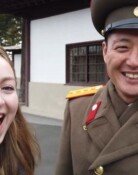Too many nos on the diplomatic stage
Too many nos on the diplomatic stage
Posted February. 11, 2014 08:41,
If a soldier says no, its no. If he says yes, its yes. If one says maybe, hes not a soldier. If a diplomat says yes, its maybe. If he says maybe, its no. If one says no, hes not a diplomat.
The aphorism is quite popular in the diplomatic circle. This shows diplomats careful approach in expressions. No is common and even more severe expressions can be heard on the recent diplomatic stage where summits have become more common than the past.
After Japanese Prime Minister Shinzo Abe visited Yasukuni Shrine at the end of last year, the U.S. Embassy in Tokyo released a statement of disappointment. Some 40 Chinese high-level diplomats across the world criticized the Japanese prime minister.
Abes series of actions, which cannot be described otherwise other than nationalism, continues. How should we view his actions? The context would be a drastic change in the international order in Northeast Asia.
Since World War II, Northeast Asia has maintained a status quo. Although the order was neither wanted by Korea, China, and Japan nor documented, it had been kept as an implicit agreement. The status quo had allowed a peaceful state. Korea, China, and Japan were able to become the drivers of the global economy based on such environment. The six-party talks to address North Koreas nuclear issues were possible because of the order.
The frame, however, is on the verge of collapsing after Japan nationalized the Senkaku islands (the Diaoyu islands in Chinese) in 2012 and China set an Air-Defense Identification Zone (ADIZ) over the East China Sea in November last year.
Dr. Henry Kissinger said in his book A World Restored that the balancing act through diplomacy or negotiations in a traditional manner is only possible in the legitimate international order. Even if it is an implicit agreement, the existing order in Northeast Asia is legitimate. In a world where Japan and China want a new rule breaking the order, traditional diplomacy means little. In this sense, China and Japan can be part of acquisitive countries which Dr. Kissinger defined as a power breaking the existing order.
It is hard to predict whether Northeast Asia will maintain the status quo or face a revolutionary change while the acquisitive powers wield their influences. One thing for sure is that it is not easy to return to the past. As Yoichi Masuzoe, a former Japanese health minister, won Tokyos election for governor on Sunday, which also means an interim evaluation of the Abe administration, Prime Minister Abe is likely to continue his nationalism.
What do we need to do to address the conundrum with no way out?
For Koreas long-term diplomacy, it will not be helpful to be emotional to Abe who is gaining a foothold in his country while taking the favor of China which is squeezing in the crack between Seoul and Tokyo. A new approach is needed at a time when a new order is created.
What if we create a new body that includes Korea, China, Japan and the U.S. which set a pivot to Asia strategy, to discuss the new order? Wouldnt it be better to creating a creative diplomatic venue for the new frame for diplomats who are accustomed to saying yes than preparing summits that pressure working-level officials and clashing each other?







